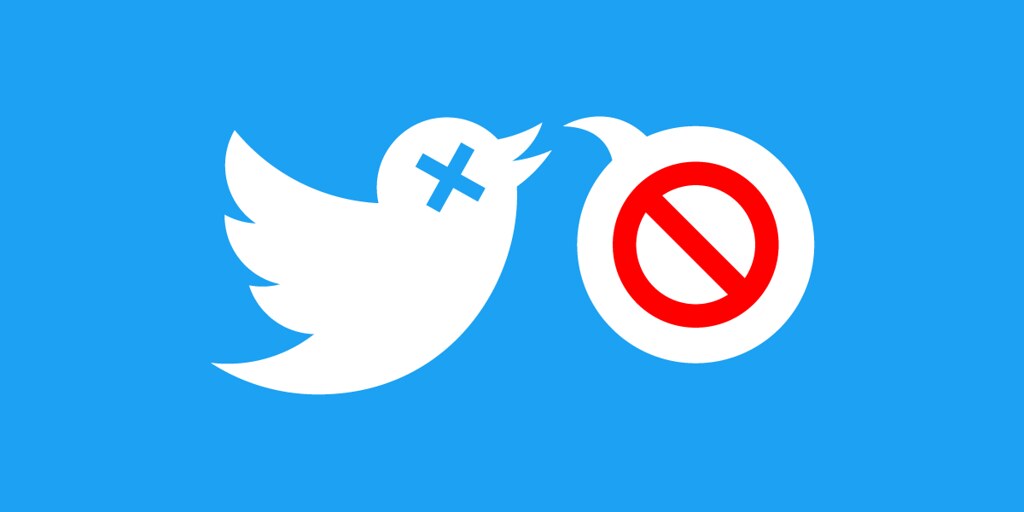Censorship And Privacy (week 11)
Censorship And Privacy
Censorship according
to Wikipedia is the suppression of speech, public communication or other
information. It is usually done when the material in question is considered
harmful, sensitive or inconvenient[2]. Censorship has been successful in the
preventing the propagation of harmful child pornography and to control the ever-increasing
efforts to unveil national secrets. It is clear that censorship has a clear
need and has a legitimate reason to exist. However, it can be incredibly easy
to misuse or mishandle as the definition of “obscenity” is very loose and is mostly
subjective. It is very hard to draw that line and have it be completely
concrete.
An example of blatant
and rampant censorship can be observed on the political portion of Twitter. Twitter
has grown the last ten years to be one of the biggest social media websites in
existence. It’s popularity has attracted all sorts of people into it’s userbase
including a huge politically charged crowd. Twitter has grown so much, that it
has become the embodiment of political landscape and drama, so much so that it
affects policies and governments in the real world. To be censored on Twitter
is equivalent to the censorship of freedom of speech and press, especially for journalists
and public figures.
“We can’t complete this
request because this link has been identified by Twitter or our partners as
being potentially harmful.”
For example on 14
Oct 2020, Twitter took an extremely controversial step by completely censoring
a post by New York Times that was critical of Joe Biden. Twitter users that
tried to share any post linking the New York Post story were met with the above
message and anyone that tried to click on the link was met with a warning “link
may be unsafe”[2]. Twitter has always publicly displayed their bias against
Conservative party members repeatedly shadow banning and censoring the former
POTUS’s tweets[3]. Funnily enough, most websites actively try and censor conservative
freedom of speech which is why I had to do most of my research on duckduckgo to
actually do research.
Privacy is defined
by Wikipedia as “the ability of an individual or a group to seclude themselves
or information about themselves and thereby express themselves selectively”.[4] Simply put, privacy is about the right to withhold sensitive information or
information that you would rather keep private regardless of the purpose or
reason for the concealment. Privacy gives us the ability to dictate how the
world sees and interacts with us and is a fundamental right meant mostly for
sanity and quality of life.[5]
An example of
horrible violation of privacy can be seen in the Facebook Cambridge Analytica
event. The data of millions of Facebook users was obtained illegally without
consent by a British consulting firm called Cambridge Analytica to be used for
political advertising[6]. The firm did this through Facebook’s Open Graph platform
and used the data of 87 million people, this was because Facebook not only
allowed them to collect data from the survey participants but also from their
friends and family. The aftermath being a complete change in the course of
history with Britain leaving the EU.
The incident left a
lot of netizens unable to trust Facebook and other big companies and inspired doubt
and fear of being monitored and influenced.
Sources:
- https://en.wikipedia.org/wiki/Censorship [1]
- https://www.theguardian.com/technology/2020/oct/14/facebook-twitter-new-york-post-hunter-biden [2]
- https://www.thegatewaypundit.com/2016/10/twitter-buries-32-donald-trumps-goto-battleground-tweets-deletes-another/ [3]
- https://en.wikipedia.org/wiki/Privacy [4]
- https://privacyinternational.org/explainer/56/what-privacy#:~:text=Privacy%20is%20a%20fundamental%20right,other%20human%20rights%20are%20built.&text=Privacy%20helps%20us%20establish%20boundaries,our%20communications%20and%20our%20information. [5]
- https://en.wikipedia.org/wiki/Facebook%E2%80%93Cambridge_Analytica_data_scandal [6]


Comments
Post a Comment